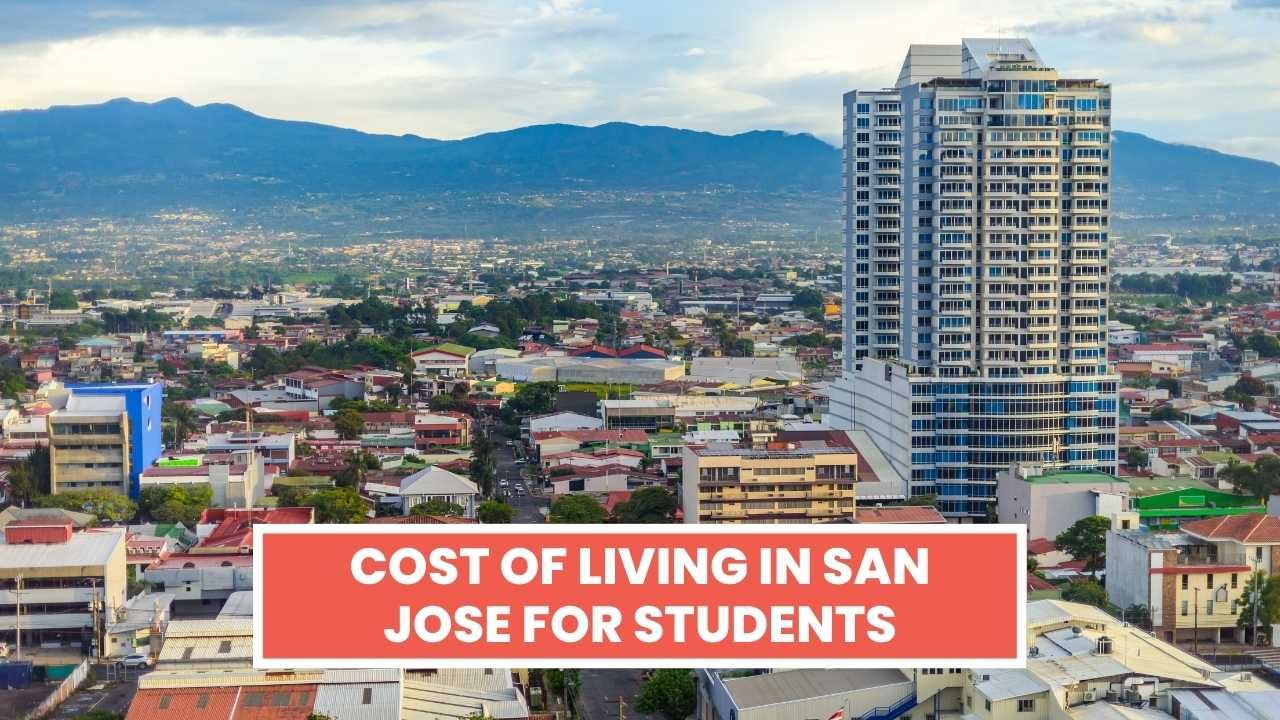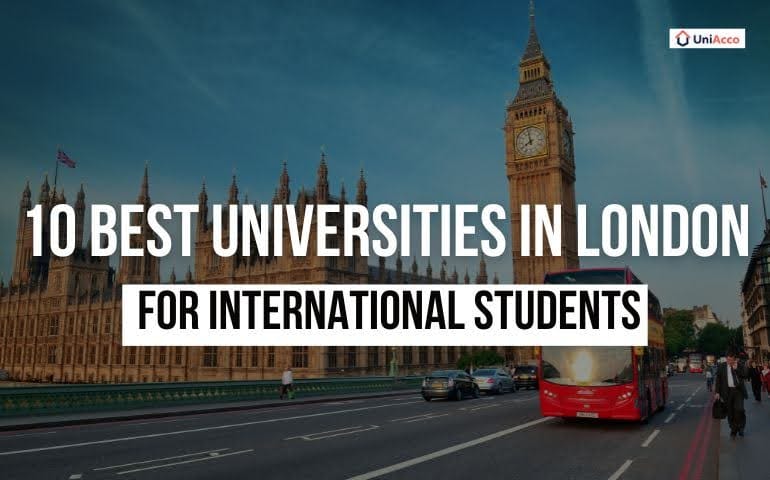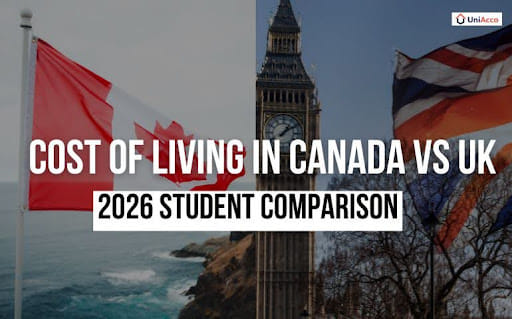Wanted to shift San Jose and worried about what will be the cost of living in that city? If you’re searching for the answer then you’ve landed on the right page to get the in-detailed costings that you need to bear in San Jose. If you’re considering studying in this vibrant city, it’s important to have a clear understanding of the expenses you’ll encounter during your time here. San Jose, located in the heart of Silicon Valley, offers exceptional educational opportunities,and also comes with a lower cost of living compared to many other cities in the United States. For instance, the cost of living in New York is 13% higher than the cost of living in San Jose for students. Let’s learn more about the realistic cost of living in this city.
Cost Of Living Calculator
| Description | Cost (£) |
|---|---|
| Total Cost of Accommodation | 100 |
| Total Cost of Transport | 50 |
| Total Cost of Utilities | 30 |
| Total Cost of Food | 70 |
| Total Estimated Cost | 250 |
Overview Of Cost Of Living In San Jose For Students In 2025
In 2025, the average cost of living for students in San Jose remains relatively high due to the city’s location in Silicon Valley. Students can expect to spend a significant amount on housing, with monthly rents for shared accommodations ranging between $1,200 and $1,800, depending on proximity to San Jose State University and other amenities.
| Expense | Monthly Cost ($) |
| Off-Campus Accommodation | 1540 – 1800 |
| On-Campus Accommodation | 1200 – 1500 |
| Transportation | 100 – 300 |
| Food | 300 – 600 |
| Entertainment | 60 – 90 |
| Groceries | 60 – 90 |
| Clothes | 100 – 300 |
Breakdown Of Cost Of Living In San Jose For Students
Utilities, the internet, and other basic services typically add another $150 to $250 per month. Groceries and dining out will probably cost around $300 to $500 monthly, while transportation costs, including public transport or personal vehicle expenses, can range from $100 to $200. Overall, students should budget around $1,800 to $2,500 per month to cover living expenses in San Jose. Let’s look at how every factor influencing the cost of living in San Jose is priced and where you can save in the sections below:
Housing
Student accommodation in San Jose offers a variety of options to suit different budgets and preferences. Whether you’re looking for university-managed dorms or private rentals, the city has something for everyone. On-campus housing at San Jose State University provides convenience with easy access to classes and campus facilities, though it tends to fill up quickly. Off-campus options range from shared apartments to private studios, often found in nearby neighbourhoods like Downtown San Jose.
| Apartment Type | Price Range (USD) |
| 1 Bedroom Apartment (City Centre) | $2,500 – $3,700 |
| 1 Bedroom Apartment (Outside of Centre) | $2,000 – $3,000 |
| 3 Bedroom Apartment (City Centre) | $4,000 – $6,500 |
| 3 Bedroom Apartment (Outside of Centre) | $3,500 – $4,800 |
Utilities
San Jose’s utility costs and communication expenses can vary depending on the apartment size and the services you choose. Monthly utility bills, including electricity, heating, and water for an 85m² apartment, can range significantly. Additionally, the cost of mobile phone plans and internet services also varies, depending on the provider and data limits.
| Service | Price Range (USD) |
| Basic Utilities (85m² Apartment) | $1600 – $450.00 |
| Mobile Phone Plan (10GB+ Data) | $30 – $80 |
| Internet (60 Mbps+, Unlimited Data, Cable/ADSL) | $60 – $126 |
Groceries
Grocery prices in San Jose can vary depending on the product and brand, but students can expect a wide range of costs for everyday items. Essentials like milk, bread, and eggs come at varying prices, while meats, fruits, and vegetables also see fluctuations based on quality and source. Below is a breakdown of the typical price ranges for common grocery items in the city.
| Item | Price Range (USD) |
| Milk (1 litre) | $1 – $2 |
| Loaf of Fresh White Bread (500g) | $3 – $7 |
| Rice (1kg) | $3 – $8 |
| Eggs (12) | $3 – $9 |
| Local Cheese (1kg) | $9 – $26 |
| Chicken Fillets (1kg) | $7 – $31 |
| Beef Round (1kg) | $15 – $44 |
| Apples (1kg) | $3 – $11 |
| Bananas (1kg) | $1 – $7 |
| Oranges (1kg) | $2 – $9 |
| Tomatoes (1kg) | $3 – $8 |
| Potatoes (1kg) | $1 – $7 |
| Onions (1kg) | $2 – $7 |
| Lettuce (1 head) | $2 – $4 |
| Water (1.5 liter bottle) | $2 – $4 |
Transportation
Transportation costs in San Jose can be quite high, especially with the city’s reliance on cars and the fluctuating price of fuel. Public transport offers a more affordable option, with local bus and light rail services available, though the prices of monthly passes and taxi services can add up. If you’re planning to drive, factors like fuel and maintenance for vehicles can further impact your budget.To save on transportation costs, consider using public transport regularly or opting for a monthly pass, which is more economical for frequent travel. Additionally, carpooling or using ride-sharing apps can help split the cost of taxis or car travel with friends or co-workers.
| Service | Price Range (USD) |
| One-way Ticket (Local Transport) | $3 – $8 |
| Monthly Pass (Regular Price) | $90 – $180 |
| Taxi Start (Normal Tariff) | $4 – $15 |
| Taxi (1 km, Normal Tariff) | $2 – $3 |
| Taxi (1 hour Waiting, Normal Tariff) | $30 – $65 |
| Gasoline (1 liter) | $1 – $1.50 |
Healthcare
Healthcare costs in San Jose vary significantly based on insurance plans, hospital services, and individual needs. Here’s a detailed overview:
1. Health Insurance Costs
Monthly Premiums
The cost of health insurance is influenced by the type of plan selected. For 2025, the Valley Health Plan offers some of the most affordable options:
- Bronze Plan: $304
- Silver Plan: $436 (cheapest among Silver plans)
- Gold Plan: $553
- Platinum Plan: $624
2. Age-Based Premiums
Premiums also vary by age, with the following examples:
- At age 18: $217
- At age 26: $244
- At age 40: $304
- At age 60: $646
When choosing a health insurance plan, consider:
- Deductibles: The amount you pay before insurance kicks in.
- Copayments and Coinsurance: Your share of costs after meeting the deductible.
- Maximum Out-of-Pocket Costs: The maximum amount you will pay in a year.
Education
The cost of education in San Jose, particularly at institutions like San Jose State University, can significantly impact a student’s financial planning and overall experience. With tuition rates, fees, and living expenses on the rise, understanding the San Jose State University cost is essential for students and their families. This knowledge not only aids in budgeting but also helps in exploring financial aid options, scholarships, and potential return on investment:
| University | First Year Tuition Fees (USD) |
| San Jose State University | $7,246 – $31,161 |
| Western State University | $2,028 |
Scholarship Opportunities For San Jose Students
San Jose State University provides a limited selection of scholarships in the USA for international students. These scholarships are primarily merit-based, as need-based options are not available. Students can explore financial assistance online through resources such as:
- IEFA: A platform to search for financial aid, scholarships, and grants.
- FastWeb: A free scholarship search engine.
However international students can opt for externally funded scholarships given below:
| Scholarship Name | Eligibility | Reward Amount |
| Inlaks Shivdasani Scholarship | Undergraduate candidates who are over 30 years of age. | USD 100,000 |
| Fulbright Nehru Fellowships | Minimum 55% or higher in a UG or equivalent course. 6.0 in IELTS. | Variable |
| National Overseas Scholarships | Total family income should not exceed INR6,00,000. | USD 15,400 |
| Mahindra Finance KCMET Scholarship | For girls from disadvantaged backgrounds. First class degree or equivalent. | USD 5,542 |
Entertainment & Leisure Costs
Staying active and entertained in San Jose comes with its own set of costs, ranging from fitness club memberships to leisure activities like tennis and cinema outings. For those looking to maintain a healthy lifestyle, a monthly fee for a fitness club can vary significantly, offering options for all budgets. Similarly, renting a tennis court for weekend play provides a great way to engage in physical activity, while catching the latest international films at the cinema adds a touch of fun to the weekend
| Service | Price Range (USD) |
| Fitness Club, Monthly Fee for 1 Adult | $45 – $179 |
| Tennis Court Rent (1 Hour on Weekend) | $30 – $50 |
| Cinema, International Release, 1 Seat | $12 – $18 |
Visa Costs To Move To USA
The process of obtaining a USA student visa is a crucial step for international students looking to pursue their education in the United States. Understanding the various visa types, associated fees, and necessary requirements is essential for a smooth application process. The most common visa types include the F-1 visa for academic study, the M-1 visa for vocational training, and the J-1 visa for exchange programs. Additionally, applicants must be prepared to pay relevant fees, such as the visa application fee and the SEVIS I-901 fee, while also gathering essential documents.
| Category | Details |
| Visa Types | F-1 Visa: Academic studyM-1 Visa: Vocational trainingJ-1 Visa: Exchange programs |
| Visa Application Fee | $185 (paid online to the US Department of State) |
| SEVIS I-901 Fee | Approximately $350 (paid electronically before the visa interview) |
| Requirements | – Acceptance by a SEVP school- Strong financial backing- Proof of English proficiency |
| Documents Required | – Valid passport- I-20 form- Financial documents- Academic transcripts- Proof of health insurance |
Minimum Wage Vs. Living Wage In San Jose
The minimum wage in San Jose is currently set at $17.00 per hour, surpassing both the federal minimum wage of $7.25 per hour and California’s state minimum wage of $15.50 per hour. This increase reflects a steady rise in wages in the region, driven by the high cost of living. As of January 1, 2023, the San Jose minimum wage was approximately $9.75 higher than the national average, indicating a significant financial difference for workers in the area.
Key Facts About Minimum Wage in San Jose:
- Current Minimum Wage: $17.00 per hour
- Federal Minimum Wage: $7.25 per hour
- California State Minimum Wage: $15.50 per hour
- Increase from Previous Year: $1.80 (from $15.20 to $17.00 as of January 1, 2023)
- Previous Increase: January 2022, raised from $15.20 to $16.20 per hour
- Estimated Workers Earning Minimum Wage: Over 200,000
- Industries Affected: Retail, hospitality, food service, and more
Living Wage in San Jose
A livable wage is defined as the hourly rate that enables a worker to cover essential expenses such as housing, food, transportation, and healthcare. In San Jose, the estimated livable wage is between $19 and $22 per hour.
Minimum Salary Required In San Jose For Comfortable Living – Regional Analysis
A recent report from Consumer Affairs has highlighted the income necessary to maintain a comfortable lifestyle in the Bay Area’s largest cities. According to the findings, San Francisco leads with the highest required income, followed closely by other major cities in the region. The analysis considers factors like median rents and aligns with the federal affordability threshold, which suggests that individuals should not spend more than 30% of their income on housing.
| City | Required Income for Comfortable Living |
| San Francisco | $131,000 |
| San Jose | $124,000 |
| Fremont | $117,000 |
| Oakland | $99,000 |
Notably, Oakland is the only city in the Bay Area that does not necessitate a six-figure salary for comfortable living. Additionally, the report indicates that Irvine holds the title for the highest required income to live comfortably in California, while New York City ranks as the most expensive city nationally.
How To Spend Wisely In San Jose?
The costs of living in San Jose can be challenging, especially given the city’s reputation for high prices. However, with a little strategic planning and mindful spending, it’s possible to manage your finances effectively while enjoying all that this vibrant city has to offer.
- Budget Your Expenses: Track your monthly spending and set a budget for essentials like rent, groceries, and transportation.
- Find Affordable Housing: Explore neighbourhoods outside the city centre and consider sharing an apartment to reduce living costs.
- Utilise Public Transportation: Opt for a monthly pass for public transport and walk or bike for shorter distances to save on travel expenses.
- Take Advantage of Free Activities: Enjoy San Jose’s parks, free museums, and community events for affordable entertainment options.
- Shop Smart: Compare prices before making significant purchases and consider buying second-hand items to save money.
Living in San Jose as a student can be expensive, but with careful budgeting and making smart choices, it is manageable. Rent is the largest expense, and sharing accommodation can significantly reduce costs. Consider joining student clubs and taking advantage of free or low-cost recreational activities. It’s crucial to create a detailed budget and track your expenses to ensure you can cover all necessary costs.
FAQs
Q1. How much does it cost to live in San Jose as a student?
The average cost of living in San Jose for students can vary, but on average, it is estimated to be around $2,822.73 for a one-bedroom apartment in the city centre. Additional expenses such as groceries, utilities, and transportation should also be factored in, with a livable wage estimated to be between $19 and $22 per hour.
Q2. How much is tuition at San Jose State University 2025?
The tuition fees for San Jose State University for the first year range from ₹6.02 L to ₹25.78 L (approximately $7,300 to $31,000), depending on the course and program chosen.
Q3. How much money do you need to live comfortably in San Jose?
To live comfortably in San Jose, it is recommended to have an income of at least $124,000 annually. This estimate is based on the affordability threshold that suggests individuals should not spend more than 30% of their income on rent.
Q4. How much does it cost to live in San Jose City College?
The specific living costs for San Jose City College students may vary, but they generally align with the overall cost of living in San Jose. Students should expect to budget similarly for housing, food, and other expenses as outlined above.
Q5. Is San Jose expensive to rent?
Yes, San Jose is considered expensive to rent, with average rental prices significantly above the national average. For instance, a one-bedroom apartment in the city centre can cost around $2,822.73.
Also check out our other informative Blogs:















0 Comments